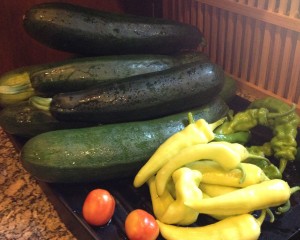I recently read a post called “eBooks and the Personal Library” (http://scholarlykitchen.sspnet.org/2012/08/20/e-books-and-the-personal-library/ ) by Joseph Esposito in which he posits that the day of the personal library is falling by the wayside. He came to that conclusion during a move in which he parted with many books rather than paying for the shipping cost. I, too, have been there. I’ve moved from Pennsylvania to Ohio, to Michigan, back to Ohio, and to Arkansas, and every time my physical library has taken a hit. I’ve built it up in each new residence only to have it reduced in the subsequent move. It is currently the smallest it has ever been, and it’s being replaced by eBooks. It’s a trend that I’m not completely in love with— there’s something about the feel and smell of paper that will always comfort me— but it is convenient and it’s here to stay.
Something Esposito said stuck with me, though. He said that we can’t tell what kind of person someone is by seeing what book is on their table because books aren’t there anymore. We need to see what is in their GoodReads or LibraryThing accounts. That statement really gave me pause.
Maybe I’m just a cynic. Maybe it’s the overprotective mom coming out in me. Maybe I need to stop watching the evening news. But I have a difficult time believing in the sincerity of online profiles, even ones as innocuous as “what I like to read” accounts. I think the only way to really get to know a person is to get to know them personally. If you meet them face-to-face and see for a fact that they are reading A Tale of Two Cities, then it’s highly likely that they are reading it. If they just say they’re reading it on their online profiles, it’s hard to take them at their word. They may be reading it now, but they may have read it years earlier and are secretly reading something they’re too embarrassed to admit to, or even nothing at all. How many authors out there are willing to write to the world that they are reading books that are getting bashed by the media or books whose content would get them looked down upon by friends or associates? Yes, there are people who will be honest about what they read and who they are, but there will also be people who won’t; people who list literary novels in their libraries and spend evenings snuggled up with beach reads (or worse). Furthermore, often authors are asked to review books outside their areas of interest for fellow authors. You could see five star reviews of sci-fi books on author pages who really only read and definitely only write historical westerns. That’s akin to false advertising. The booklist profiles really can’t be trusted as viable sources of information about the readers.
I know in this day of advanced technology we all are just a keystroke away from corresponding with almost anyone around the globe. It’s an exciting and fascinating time. But I just don’t think I can safely say I can make judgment calls on strangers based on booklists, or any online profiles. I guess I just miss the days when I could shake someone’s hand and look them in the eye. Barring that ability, I’m not going to use booklists as a screening tool. I’ll turn to social media avenues (see that word social in there?) to try and determine what kind of people they are. Blog comments, Twitter posts, Facebook presence, WANAtribe… these are the tools I use to interact with people online (huh, interact, another keyword there).
I feel the pain of Mr. Esposito’s loss. I miss my books, too, and I miss the days of libraries and big bookstores and snuggling up with an actual words-on-paper book. He has a fantastic blog (http://scholarlykitchen.sspnet.org/) that I urge you all to visit. But I wish him, and everyone, success at screening booklists when getting to know people online. I’ll stick to actual communications instead.



 What is the point of writing or ghost writing, or even being a ghost writer or author of a novel, book, memoir or screenplay, if nobody else reads it or them? One reader does an experience make whether it is a ghost writer book, ghost writing screenplay or author memoirs. The point has always been the reader, your readers. You think when you ghost write a book between the many of you, what am I going to be an author or screenwriter about, how am I going to have a ghost writer talk, and how am I making ample money for my business, for my family, for myself – how about simply caring about your readers for a change?
What is the point of writing or ghost writing, or even being a ghost writer or author of a novel, book, memoir or screenplay, if nobody else reads it or them? One reader does an experience make whether it is a ghost writer book, ghost writing screenplay or author memoirs. The point has always been the reader, your readers. You think when you ghost write a book between the many of you, what am I going to be an author or screenwriter about, how am I going to have a ghost writer talk, and how am I making ample money for my business, for my family, for myself – how about simply caring about your readers for a change?